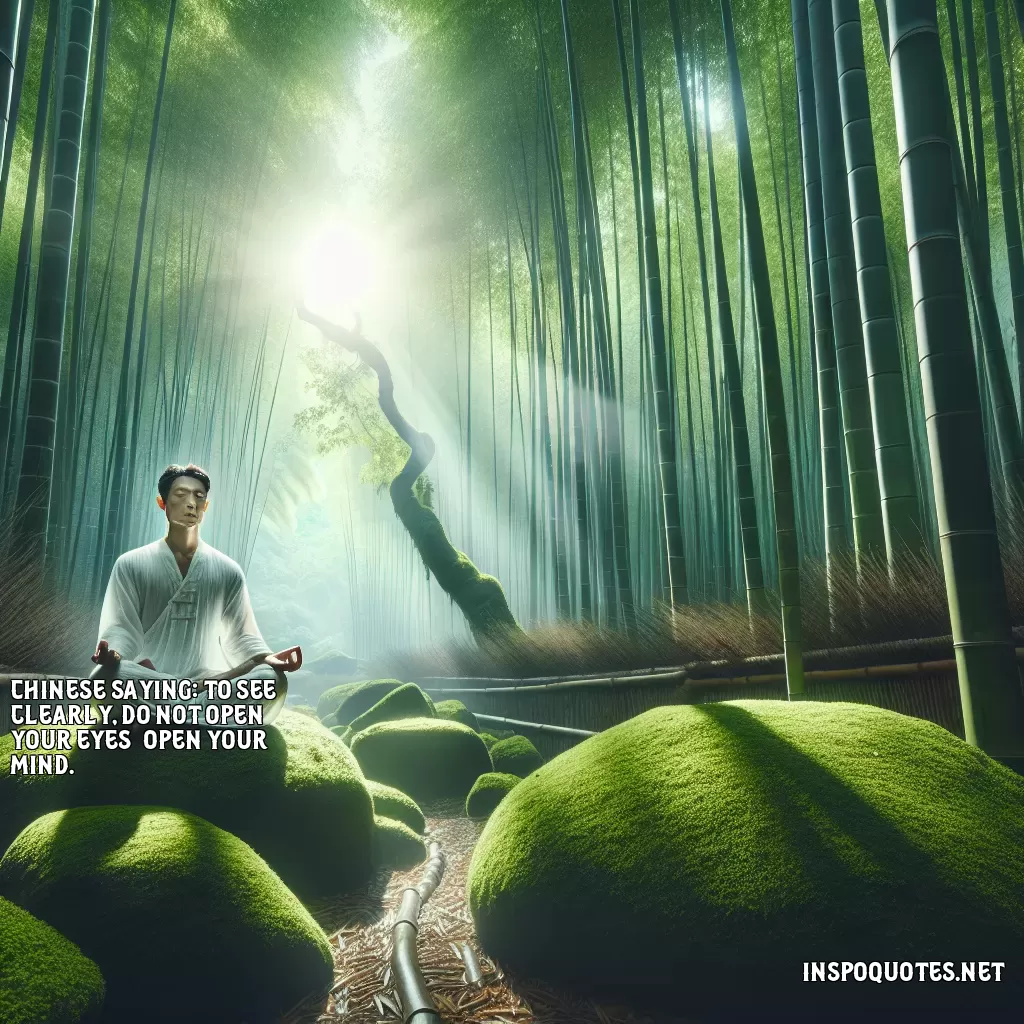
Chinese Saying: To see clearly, do not open your eyes open your mind.
Author: Laozi
👁️ 2 views
The Chinese saying, "To see clearly, do not open your eyes; open your mind," offers valuable insights into the nature of perception and understanding. At first glance, this advice may seem contradictory, as we typically rely on our eyes for physical sight and information. However, the quote delves deeper, suggesting that true clarity and comprehension do not come solely from our sensory perception, but rather from an openness of the mind. By advising not to "open your eyes," the saying is emphasizing that seeing something isn't enough to truly understand or grasp its full nature. Our eyes can be deceived by appearances, distracted by superficial details, or limited by the biases of the observer. Simply looking at something doesn't guarantee that we understand it in its entirety or complexity. Instead, "open your mind" serves as a call to approach situations with curiosity, creativity, and a willingness to go beyond the surface. It speaks to the importance of intellectual openness and the readiness to accept new ideas, perspectives, and information. An open mind allows us to see beyond the obvious, consider alternative viewpoints, and recognize subtleties that our eyes might miss. This phrase encourages introspection and critical thinking, prompting us to consider that true understanding involves both acknowledged knowledge and intuitive insight. It is about cultivating awareness that is not limited to observable facts but enriched by an emotional and intellectual engagement with the world around us. This holistic approach allows us to see and comprehend life with greater depth and clarity.
Quote By: Laozi
Laozi, also known as Lao Tzu, was an ancient Chinese philosopher and writer, traditionally considered the founder of Daoism (Taoism) and attributed as the author of the "Dao De Jing" (Tao Te Ching), a foundational text of the philosophy. Believed to have lived in the 6th century BCE during the Zhou Dynasty, Laozi's teachings emphasize harmony with the Dao (Tao), natural simplicity, and the pursuit of wisdom through humility and non-action (wu wei). Revered as a sage, his influence extends beyond philosophy into spiritual and political thought throughout Chinese history and beyond.
Bio added on: 2025-02-13 13:50:25